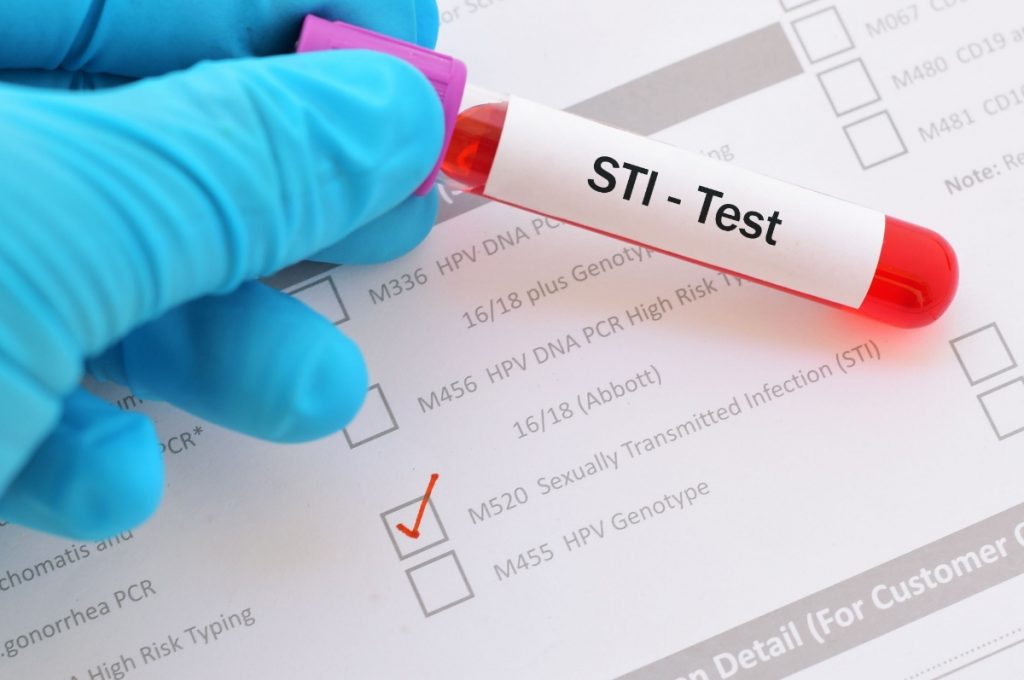For every sexually active individual to make the most of their sex lives and have a long-lasting one, they have to know and care about infections related to their reproductive system, whether sexually transmitted or not. I find that some people look out for some physical traits in a person to determine if they are infection-free or not and it is so wrong. I’ve had a lab technician who should’ve known better look me in the eye and tell me that I was too pretty to have HIV. I was about to get tested and I could’ve had the virus even if I was the prettiest woman ever created.
I’ve met a couple of people who’ve once had an STI and others who are living with HIV and trust me, there is no sure way you can tell that those people have an infection using looks.
- What are the most common STIs? Syphilis, Chlamydia, Gonorrhea, Trichomoniasis and HIV??
- Are there any warning signs to look out for in yourself or partner to tell if they have an infection?? What are they and what do you do after noticing them??
I have the answers you need. Keep reading!

Before I list the signs, note this: some STIs are asymptomatic, meaning they do not show signs or symptoms. Others show signs in men but not women and vice versa, so a woman might have it and be perfectly fine but after having unsafe sex with a man, he will notice symptoms of that infection because she transmitted it to him unknowingly. Gonorrhea is one of such infections and it is the reason why sexually active individuals who aren’t exclusive with their partners are advised to get tested as often as they can to ensure that they are infection-free.
OTHER AYSMYPTOMATIC STIs
• Chlamydia
• Trichomoniasis in men
• Human Immunodeficiency Virus (HIV)
• Herpes
• Human Papillomavirus (HPV)
• Hepatitis
Some people are fortunate enough to notice signs or symptoms of the above infections and in that case, they are able to start treatment early enough because sometimes, there are no symptoms or very little symptoms that are often overlooked or mistaken for other infections which are not sexually transmitted. The only way to know for sure is to have regular tests if you are sexually active or have raw sex with anyone.
NOTE:
Some STIs are curable and easy to treat with over-the-counter drugs whereas others are more complicated and take longer to clear off. Others like Syphilis are recurrent and having them make you more susceptible to other infections like HIV.
WHY IS IT SO?
They suppress your immune system (the organ system in the body that acts as a guard to fight and defend the body against harmful substances and infections).
Suppressing your immune system means you have a high chance of contracting an infection on the least exposure.
Others which include the viruses (HIV, HPV and herpes) and hepatitis are incurable but can be controlled with medication to relieve symptoms, prevent complications and prevent transmission to others.
When left untreated, STIs put you at risk of getting severe or life-threatening medical conditions like cervical cancer for Human Papilloma Virus (HPV).
In some cases, HPV is harmless and the symptoms go away on their own without medication.
For others like Syphilis, the infection can be passed on from a pregnant woman to her unborn infant. In such cases, the baby might be born blind and it is life-threatening. Again, this is why there is a need for sexually active individuals to go for regular tests.
THE SIGNS TO LOOK OUT FOR
1. Abnormal vaginal discharge and odor
Every woman should know their normal, everyday smell and vaginal discharge and if they notice anything odd, they rush to get tested to find out the cause and if it’s an infection, they can treat it. I have a detailed post on vaginal odors and discharge. Read it here and find out all you need to know about the different odors and their causes.
2. Penile discharge
3. Itching, pain or irritation inside or around the genital area (vagina, penis, buttocks or inner thighs)
4. Bumps, lumps, blisters, redness, swellings, warts and/or open sores around the genital area
5. Bumps, sores or warts near the mouth
6. Painful unrination or burning sensation
7. Unusually heavy mestrual bleeding or bleeding between periods
8. Swollen and/or painful testicles
9. Painful bowel movement and/or itching of the anus
10. Painful intercourse
11. Swollen lymph nodes
12. Persistent headaches
13. Chronic diarrhea
14. Persistent fatigue
15. Soaking night sweats
16. Coughing and shortening of breath
17. Bleeding during sex
18. Dark urine
19. Abdominal pain or discomfort
20. Jaundice (yellowing of skin or iris (white of the eye))
21. Red or reddish-brown rashes or sores on any part of the body including the palm or soles of feet
22. Fever
With all these signs in mind, make sure you take good care of yourself, have safe sex and keep minimal sexual partners to reduce chances of contracting an STI. If you notice any of the above signs, get tested, get treated and inform your partners to also get treated.
You should also know what a healthy vagina, penis, anus or abdomen looks or feels like and when you notice anything odd, you take immediate action to find out what exactly is causing it and if there is a need to treat it, you do it to prevent any serious problems in the future.
GOING FOR STI TESTS

WHEN??
• When you suspect your partner of cheating or having other sexual partners
• After having raw sex with a new partner or someone whose STI status isn’t known to you
• After rape or sexual abuse
• If your partner or former partner or fling tells you they’ve tested positive for an STI
• When you have sex in areas where STIs are prevalent
• When you notice any or a number of the signs mentioned in this post
• Every three months if you change sexual partners frequently or have an increased number of sexual partners
WHERE?
PPAG clinics all over Ghana, planned parenthood clinics all over Africa and the world, Marie Stopes International and other health facilities offer STI testing and treatment.
To get it done for free or at a very low cost, I will advise you to go to any Planned Parenthood clinic around you. If you are in Ghana, find a PPAG clinics around you by inputing “PPAG clinic” in Google Maps and you will get the direction you need. If you are in Accra, locate the clinic at Latebiorkoshie and if you are in the Ashanti Region, locate it at New Suame
So many people are living with STIs that they are unaware of and unless they notice symptoms, they will keep spreading them. If you ever test positive for an STI, make sure to let your partner or former partner(s) know so they can also get tested for treatment. That way, you will prevent transmission of that infection to more people and after completing treatment for an STI, it is safe to go for another test to ensure that you are completely cleared of that infection before you have unprotected sex with anyone.
Have any questions or concerns?? Leave them in the comments or email me and I will reply shortly.
















